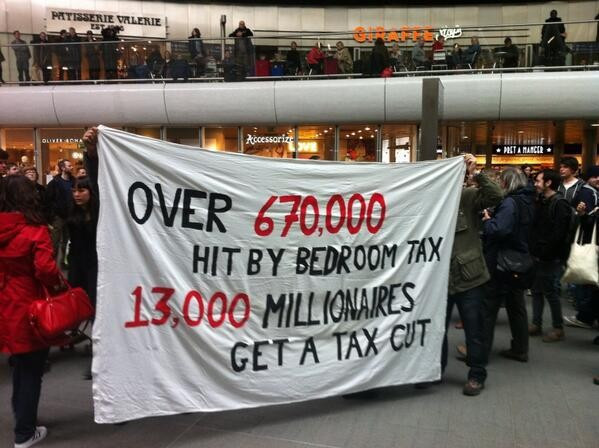Conservatives eye £12bn welfare cuts and Bedroom Tax rise

Prime Minister David Cameron is now at liberty to embark on a programme of welfare cuts with fears for the most vulnerable in society.
Former Labour London Mayor Ken Livingstone has called the Tory landslide election victory "five more years of pure evil", while TV star Paul O'Grady compared David Cameron to the Sheriff of Nottingham for treating hard-pressed working people as "peasants".
He added: "The Bedroom Tax is bloody ridiculous. I think it's disgusting and just another way of taxing people."
The Tories will be able to amass £250m a year in housing benefit until 2020 by making a million more families pay the bedroom tax.
The number will rise by 220,000 a year with people paying an average £3,800 over the five-year term of this government.
A report last week said the bedroom tax may even rise above the present average of £14 a week for one extra bedroom and £25 for two.
The bedroom tax – officially known as under occupancy charge or the Spare Room Subsidy – is a change to housing benefit entitlement. It that means people will receive less in housing benefit if they live in a housing association or council property that is deemed to have one or more spare bedrooms.
Having one spare bedroom means losing 14% of entitled housing benefit, while two or more spare bedrooms means losing 25% of entitlement. The tax started affecting properties with spare bedrooms in April 2013.
Stephanie Bottrill killed herself in August 2014, blaming the bedroom tax. In a final note left for her son, she said: "Don't blame yourself for me ending my life. The only people to blame are the government."
A leaked Whitehall paper drawn up in March suggested a number of further cuts for consideration such as reducing eligibility for Carers' Allowance, and limits on child benefit.
In a Guardian report, the Institute for Fiscal Studies said: "Even if all of the reforms discussed today were implemented, alongside confirmed Conservative party policies, the total saving would be likely to fall well short of the £12bn per year that the Conservatives intend."
© Copyright IBTimes 2025. All rights reserved.




















